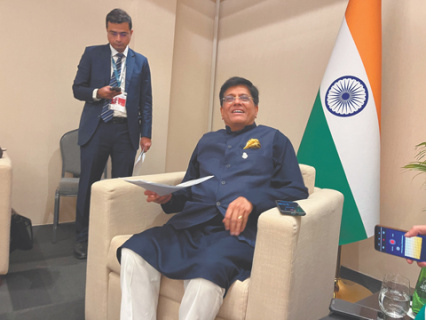
Washington intends to persuade Delhi to make concessions in duties on imports of American cars. Elon Musk may be personally interested in this, as he would be very interested in the large Indian market, given his image losses in Europe and Canada. However, US President Donald Trump probably will not put much pressure on Indian partners. Delhi is the most important strategic partner in the Indo–Pacific region, with which Washington does not need to quarrel.
Minister of Trade and Industry Piyush Goyal has been in the United States for a week-long visit since Monday. He is discussing issues related to mutual duties with American representatives.
The Indian market, which is quite tightly regulated, but huge and attractive to entrepreneurs, is of interest to both the United States and other countries, including the United Kingdom (see NG dated 02/24/25).
Delhi protects its not always efficient manufacturers from competition by being particularly tough on protectionism in the automotive industry. Import duties on cars reach 110%. This angers many in the United States, including Elon Musk, the Reuters news agency notes.
A businessman and now a politician wants to promote the sale of Tesla cars in the Indian market. On Wednesday, the contract for the creation of the first showroom in Mumbai was confirmed. Americans rent a small room for 2.5 million dollars for five years.
Musk, of course, would benefit from a reduction in duties. But local automakers admit that they would not be able to cope with foreign competitors, so they are asking the government to protect them from competition as tightly as possible.
In February, Indian Prime Minister Narendra Modi and Trump agreed to deepen trade ties and achieve a trade turnover of $500 billion by 2030.
American sources report that Washington is demanding that Delhi reduce duties on a range of goods, excluding the more sensitive area of agriculture. In other words, Trump is not trying his best to promote the interests of American farmers in India.
Andrey Sidorov, head of the Department of International Organizations and Global Political Processes at the Moscow State University Faculty of World Politics, notes that India is Trump’s most important ally, and it was from his suggestion that the Asia–Pacific region became known as the Indo-Pacific. This placed a special emphasis on India.
“The region is more of a political structure, and in the 2017 National Security Strategy, Trump, in fact, revived the idea of a QUAD dialogue (USA, Japan, Australia, India), which was put forward by Japanese Prime Minister Shinzo Abe in 2007 and which had already been forgotten by that time. On the one hand, Trump wants to use India, the world’s largest democracy, as a counterweight to China, and on the other, to align the trade balance with it, as with other countries,” the NG expert explained.
He added that India’s emergence as a major power is hampered by Pakistan’s opposition and New Delhi’s forced orientation towards the ASEAN countries.
“And of course, Washington is fighting for the Indians to buy American weapons. However, in Delhi, they often prefer products from the Russian military–industrial complex,” says Sidorov.
Right now, India is much more important to Trump than Europe, especially when it comes to containing China. However, more specific conclusions can be drawn after the detailed development of a new National Security Strategy by the White House administration, the expert notes.
Recently, the media reported that the Indian authorities may prefer the Russian Su-57 fighter jets to the American F-35.
